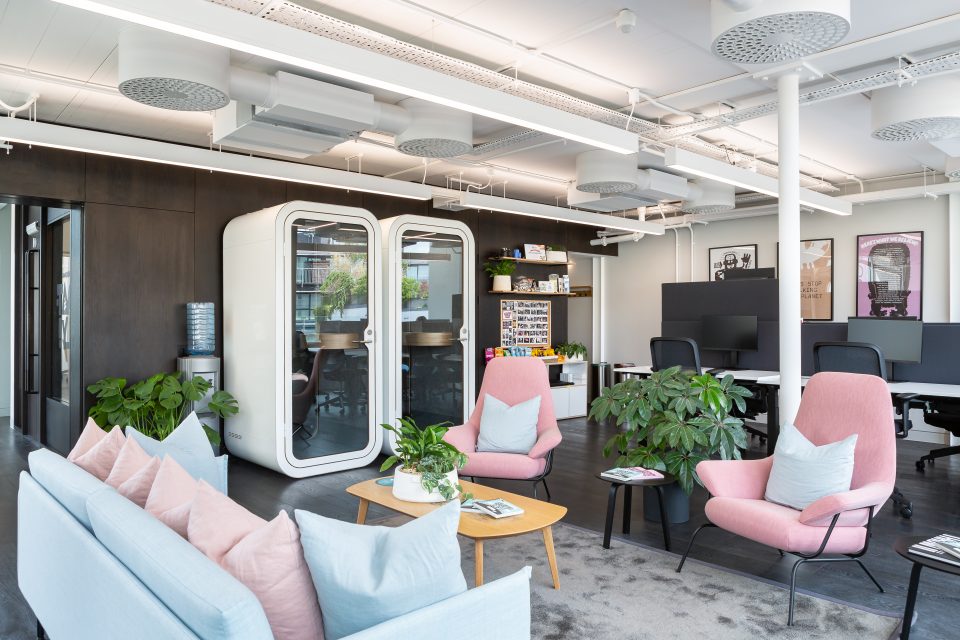The future of the office: How one property firm is using virtual reality to create the new normal

The future of the office has never been more richly discussed.
For all the benefits of flexible working, most firms seem determined to bring people back in to reap the benefits of collaboration and creativity.
But the co-founder of one property firm, Kitt, is determined to make sure that when we get back to the office, it works – even using virtual reality to ensure businesses create the spaces they need to build company culture.
City A.M. meets Lucy Minton in an empty office space in Holborn – but one that isn’t empty, at least virtually, for long.
After picking our preferred decor (twentieth-century Scandinavian and exposed brick), we put on an artificial reality headset. Suddenly I’m walking round a fully kitted-out office, albeit a tad timidly for now.
“It takes a while but becomes second nature,” Lucy tells me, laughing.
Kitt is more, though, than snazzy tech. In fact, in a corporate office rental market that hasn’t changed much for many a year, they’re a genuine London disruptor.
And, in giving office culture a reboot, are playing a fascinating role in their own right in the return to work.
At her former company, she says, “we felt like everything else in business had been made easier – business services, business banking, you name it.”
But as she looked for a bigger office for a growing team, an idea for this new business emerged.
“Every category had been disrupted except for this one, and real estate hadn’t really caught up. A lot of our networks were moving into WeWorks and shared spaces and whilst they made the process really easy, it didn’t really work for us because it was too cookie-cutter and we couldn’t create our own culture.”
Read more: The future of the office – What will be the ‘new normal’?
Kitt was born – finding spaces, and then using a crack team of in-house interior designers to fit out the office. The idea is to turn what is occasionally a somewhat painful process into something significant more straight-forward.
“We felt there was a model there for SMEs and scale-ups, companies a bit bigger, who want a more tailored product for them to better use their space that they’ve got whilst still maintaining that management package.”
Kitt extends beyond the handover of the keys, using an app to allow you to do anything from order a new meditation pod to order a keg for the next office party.
And that, Lucy thinks, will become ever more important in the future as the office becomes more than just a place to work, but one which is explicitly designed to be a space that encourages collaboration and co-working.
Amongst their recent clients are Oatly, whose London office they found and designed. In a world in which the benefits of the office are now more about bringing people together than simply handing somebody a desktop and a chair, it’s been the communal spaces that have provided much of the focus.

“Hybrid working is a new experiment. It’s not the office, and it’s not remote, and it’s something that we’ll need some time to work out.
“We’re now finding lots of businesses coming to us asking ‘How do we create a space that works for hybrid working?’
“The design approach has really changed as a result. A lot more collaboration, fewer desks, even modular furniture,” she tells me.
So perhaps the office isn’t dead yet – it just needs a personal touch.
Read more: Property transactions surge to record high in June